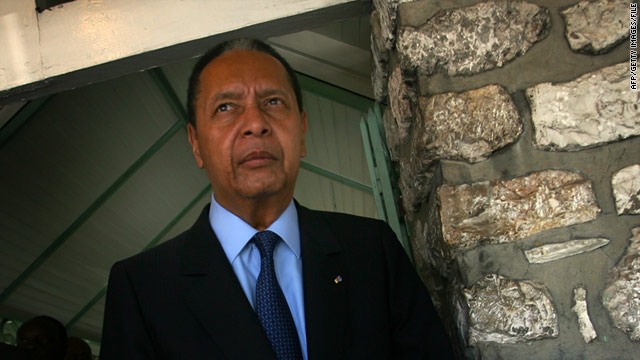By Brittney Hodnik
Impunity Watch Reporter, North America
PORT-AU-PRINCE, Haiti – Amnesty International and other human rights groups want legal investigation and prosecution for former dictator Jean-Claude “Baby Doc” Duvalier. Duvalier unexpectedly returned to Haiti in 2011 after spending 25 years in exile. During his 15 years as dictator in Haiti, thousands of people were tortured, killed, or went missing. Some support Duvalier’s recent return, but many more seek justice.

Jean-Claude Duvalier became president in 1971 at the age of 19, earning him the nickname, “Baby Doc.” He took over for his father, Francois “Papa Doc” Duvalier, according to The Washington Post. After serving as a dictator for 15 years, he was exiled to France and did not return until January 2011.
Amnesty International recently published a report encouraging the current authorities to seek prosecution of Jean-Claude Duvalier. According to CNN, Amnesty International’s 40-page report highlights the arbitrary detentions, torture, deaths in custody, killings and disappearances of Haitians during Duvalier’s 15 years in power. Special Advisor at Amnesty International, Javier Zuniga went on to describe the abuse as systematic and widespread and that some of the actions “amount to crimes against humanity.”
Haitian authorities already indicted Duvalier for embezzlement, theft of public funds and crimes against humanity committed during his presidency according to Amnesty.org. Further, CNN reports that the embezzlement case alleges hundreds of millions of dollars stolen from the national treasury. Amnesty International has already provided copious amounts of documented abuses to aid in the prosecution.
Not all Haitians are seeking legal repercussions however. At an Amnesty International conference with authorities, protestors showed up in support of Duvalier, criticizing Amnesty as “imperialists” who wanted to divide the country, as reported by The Washington Post.
The bigger hurdle seems to be Haiti’s judicial system in general. Many are questioning why Duvalier has been back in the country for 8 months without any legal repercussions. Amid a seemingly stalled investigation, concerns for Duvalier’s health have come into play. As reported by The Guardian, he was recently hospitalized for chest pains and many fear he will die before justice will be served.
According to The Guardian, Duvalier is currently under a very loosely enforced version of house arrest. He is reportedly living lavishly in a suburb of Port-au-Prince, visiting friends and even attending jazz concerts.
“The cases of human rights abuses we documented in Haiti are likely to be only a small proportion of what really happened during Duvalier’s rule,” said Zuniga. Amnesty International and other human rights groups will continue to seek justice for the impunity created under Duvalier’s rule.
For more information, please visit:
Amnesty International — Haiti Urged to Bring Jean-Claude Duvalier to Justice — 22 Sept. 2011
CNN — Human Rights Group: Bring Duvalier to Justice in Haiti — 22 Sept. 2011
The Guardian — Will “Baby Doc” Duvalier Ever Face Justice in Haiti? — 22 Sept. 2011
The Washington Post — Protestors in Haiti Reject Amnesty International Report on Former Dictator — 22 Sept. 2011



